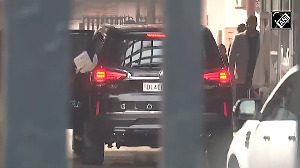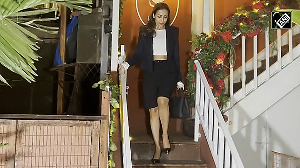What on earth is the Delhi High Court up to? Two of its learned judges are coolly ignoring statutory regulations and seeking to mandate a link between drug regulation and patents where none exists in law. It is the result of a clever ploy by big pharma, the multinational drug companies, who have been trying for long to link the regulatory processes for drug approvals with that of the grant of patents -- tasks that are conducted by two separate agencies with clearly mandated functions that are poles apart and whose expertise is vastly different.
One is the Drug Controller General of India, whose function it is to assess the quality, safety and efficacy of a drug. The other is the Controller General of Patents, Designs and Trademarks, commonly referred to as the Patents Office, which, of course, is responsible for granting patents. The DCGI is an agency that functions under the ministry of health while the Patent Office operates under the ministry of commerce.
However, going by recent rulings in two cases it appears that the Delhi High Court is willy-nilly insisting that these two agencies act in concert.
Let us take the first, a writ petition against the Union of India and thus a more weighty issue. Here, Bayer, patent holder of the anti-cancer drug sorafenib tosylate, had filed the writ petition against the government and the DCGI because the latter had entertained an application from one of India's top pharma companies, Cipla, for the marketing rights to a generic version of the patented drug. It complained that this would lead to multiplicity of proceedings, besides seriously prejudicing its rights as the owner of the patent.
The court had, in its interim order of November 7, 2008, stopped the drug controller from processing Cipla's application.
This had led to fears that the decision could be used as a precedent by pharma MNCs or the innovator companies to get a stay on the processing of all marketing approval applications filed by generic companies on drugs that have been patented in the country. However, there was some relief last Monday (January 19) when Justice G S Sistani ruled that the stay was specific to Bayer's sorafenib tosylate issue. And, in tacit acceptance that drug pricing is still a valid concern in India, the judge allowed the Cancer Patients Aid Association to be impleaded in the case.
The truly curious ruling comes from Justice Rajiv Sahai Endlaw in a suit filed by the MNC Bristol Myers Squibb against generics firm Hetero Drugs. MBS had got wind of the fact that Hetero had applied for marketing approval of its version of MBS's Dasatinib, and asked the court to restrain Hetero from manufacturing or selling it. In an ex parte order (without hearing the parties), the judge granted a restraining order against Hetero but the surprise was that it also asked the DCGI to take note of patents on drugs and not to grant marketing approval for any drug which has already been patented.
The Endlaw ruling has come as a sock in the jaw for generics manufacturers and also set off a huge debate in the legal fraternity on the constitutional validity of such an order. Legal experts point out this order cannot be sustained since the Indian law does not provide for such a linkage. Nor does any other country barring the US seek such a link. And even in the US, the drug regulator Food and Drug Administration has admitted it is not up to the complex task of looking at patents.
A report of the House of Representatives committee has noted that 'the FDA does not have adequate expertise or resources to review the applicability of patents, and it has been unable to prevent abuses of the system by patent holders that have led to delays in the availability of generic drugs.'
The question that is agitating legal and health activist circles is how could the court issue such an order, especially since it could curtail the use of the Bolar provision. This is a critical public health safeguard which enables generic companies to make the patented drug and get marketing approval in advance so that a generic can be released immediately after the patent expires.
Even more curious is that the (DCGI) Surinder Singh had said last year that he would pursue such a linkage but was forced to backtrack after a public cry. Will the court also do so?







 © 2025 Rediff.com -
© 2025 Rediff.com -